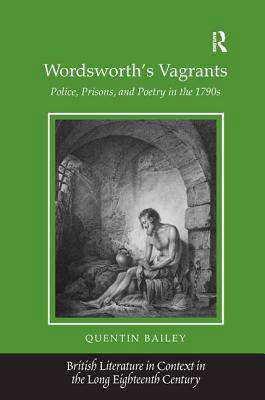
- Afhalen na 1 uur in een winkel met voorraad
- Gratis thuislevering in België vanaf € 30
- Ruim aanbod met 7 miljoen producten
- Afhalen na 1 uur in een winkel met voorraad
- Gratis thuislevering in België vanaf € 30
- Ruim aanbod met 7 miljoen producten
Zoeken
Omschrijving
Wordsworth's Vagrants explores the poet's treatment of the 'idle and disorderly' in the context of the penal laws of the 1790s, when the terror of the French Revolution caused a crackdown on the beggars and vagrants who roamed the English countryside. From his work on the Salisbury Plain poems through to the poetry about vagrants, beggars, and lunatics in Lyrical Ballads, Quentin Bailey argues, Wordsworth attempted to imagine a way of relating to the vagrant and criminal poor that could challenge the systematizing impulses of William Pitt and Jeremy Bentham. Whereas writers had previously relied on sensibility and fellow-feeling to reveal the correct ordering of society, Wordsworth was writing in a period in which legislators, magistrates, and commentators agreed that a more aggressively interventionist approach and new institutional solutions were needed to tackle criminality and establish a disciplined and obedient workforce. Wordsworth's interest in individual psychology and solitude, Bailey suggests, grew out of his specific awareness of the Bloody Code and the discussions surrounding it. His study offers a way of reading Wordsworth's poetry that is sensitive to his early radicalism but which does not equate socio-political engagement solely with support for the French Revolution.
Specificaties
Betrokkenen
- Auteur(s):
- Uitgeverij:
Inhoud
- Aantal bladzijden:
- 230
- Taal:
- Engels
- Reeks:
Eigenschappen
- Productcode (EAN):
- 9781409427056
- Verschijningsdatum:
- 28/09/2011
- Uitvoering:
- Hardcover
- Formaat:
- Genaaid
- Afmetingen:
- 156 mm x 233 mm
- Gewicht:
- 588 g

Alleen bij Standaard Boekhandel
+ 405 punten op je klantenkaart van Standaard Boekhandel
Beoordelingen
We publiceren alleen reviews die voldoen aan de voorwaarden voor reviews. Bekijk onze voorwaarden voor reviews.











